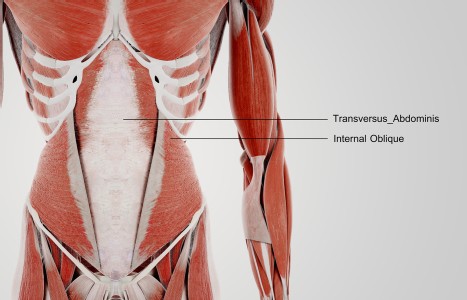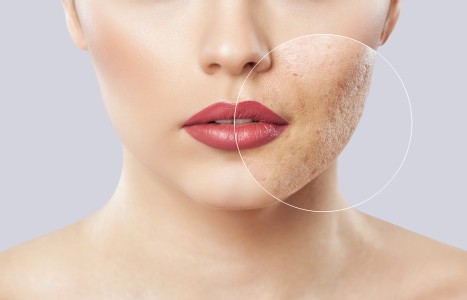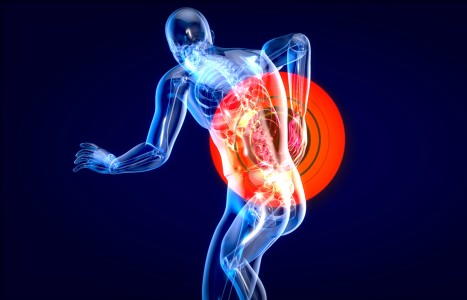TrA-2, my primary needle location, I needle 95% of the time and I think it works the best. You’ll know you have the right point location when you discover the muscle twitching when applying electric stimulation.
"Welcome the Pain": An Interview With Master Zion Yu
The following interview took place with Master Yu in Los Angeles a few months ago.
Jennifer Waters (JW): Tell me about your family history.
Zion Yu (ZY): I was born in Shanghai. Immediately after the Communists took over, we fled to Taiwan. There are many generations of traditional Chinese medicine doctors in my family lineage. My father was a famous doctor and specialized in the nervous system and bones. He was really a genius regarding the nervous system.
Traditionally, each generation of healers has their own gift. My father became famous for his gift of the nervous system and bones. When we arrived in Taiwan, we had nothing. Because my father was reputed to be the best bone doctor, he was sought out by the general of Taiwan to treat his son. His son was led to believe that he needed his leg amputated after a serious injury in which the bones in his leg were crushed. My father treated him immediately with a plaster made of vinegar and crushed shells. The treatment was very successful, and six months later he was able to walk and attend his own wedding!
The general then gifted us with a basket; inside was a large bar of gold. With this gold, my father opened his clinic and was very successful - and consequently, very busy.
JW: Tell me about your own acupuncture training.
ZY: When I was seven years old, my mother was diagnosed with uterine cancer. She became very ill and eventually went into a coma. I was very close with her, and did not think I could survive without her. So while she was in a coma, for three days I cried and prayed and begged her to come back. It worked! She heard my voice crying out for her and made the decision to come back.
Because my father had a big hospital to run, I was charged to take care of her. I started to learn to help her under my father's guidance. During those years working on my mother, I learned how to release pain immediately with massage and acupuncture. She was a great teacher for me, and ultimately became my medical thesis. She told me where she was in pain, and I would just work it out for her. Through this process, we became a team.
JW: When did you leave Taiwan?
ZY: After my father died, I left in 1970. He had a lot of knowledge and information, some of which he did not transmit to me because it was dangerous, like some bloodletting techniques. He knew that I had enough information and training to be a doctor. I came to Los Angeles because I had a friend here ... and this is where Hollywood is!
Almost immediately, I began doing research at UCLA in 1971, with Dr. Thelma Moss, who was doing neuroscience studies of acupuncture and the nervous system. We used cranial photography to document the changes in the nervous system as a result of acupuncture needling. During these three months we were able to produce all kinds of pictures of this graphic change. We also used oranges and leaves and photographed these changes. We were able to show that acupuncture needles were able to give the leaves life and show the changes that occurred in the oranges. It was really incredible to work with this technology and document changes in such an obvious way.
JW: Did you have any other training outside your family?
ZY: Only myself. I always challenge my own body. If a patient complains of shoulder problem and I give them six or seven treatments and they don't feel better, I will always manifest the exact same problem they have. Then I am able to heal myself, so that I can then help them.
JW: What is the most important issue you deal with when treating someone?
ZY: The feeling and the connection I have to them. I ask myself: What do I see? Where do I feel? Do I feel the patient's pain? Also, a very important quality is to not judge a person. Only see symptoms as symptoms. Treat a person that way, and there will be less involvement with the mental aspects. As long as you get involved with the pain and trust yourself, you can succeed.
JW: Tell me more about your early years treating patients.
ZY: The first time I treated someone "professionally," I was 14 years old and had been studying with my father. An American colonel's wife brought their daughter in who had a cataract in her eye. Her eyes always had a lot of pressure. My father had me treat this patient because I spoke English. Also, the girl and I were almost the same age, so it was a good match. I already observed this kind of treatment, and my father had already treated her twice.
After that, I gave her five treatments. I was a bit nervous, and my father coached me. He encouraged me not to worry and just do what needed to be done. I put in two needles in GB 20. She started to cry a little, and the more I twisted the needles, the more the tears came out. After the sixth treatment, she really got better; everything cleared up. You have no idea how much this young girl appreciated me.
JW: How did your father teach you?
ZY: My father and I always discussed everything about the patient, sometimes in front of them and sometimes not. That was how I learned - by talking over the diagnosis with my father and investigating their condition. When we would go out into town, we looked at everyone and diagnosed them. He always encouraged me to use my mind, and my natural senses.
JW: Why do you say, "Welcome the pain?"
ZY: Because pain is one of the gifts that God gives to us - to warn, to protect, and to reconnect us. If you can overcome pain and then even learn to enjoy pain, then your life is wonderful. If you don't welcome it (the pain that comes while treating), then you are anticipating the pain. When you are anticipating it, when each needle comes, it scares you. If you welcome pain (which is really only an indication of getting out of pain), each needle becomes delight. The pain is like bliss.
JW: Can you explain how acupuncture works?
ZY: The foundation of acupuncture is the nervous system. It is like a river system whereby a little stream becomes a big river, like the Nile, and eventually passes through a village and on to the ocean. If the stream becomes overloaded with sand, however, a blockage is created. This is where the skin will look different. When you can really start looking at the body and skin in an objective way, you can begin to see beneath the skin and what is going on inside. You will be able to see where the meridian is blocked and where it needs to be open. If someone has a brain tumor, for example, their body has been totally blocked.
Acupuncture will actually help to clean up all the blockages in the body and strengthen all the nerves to communicate back to the brain to have constant, clear communication throughout the body.


